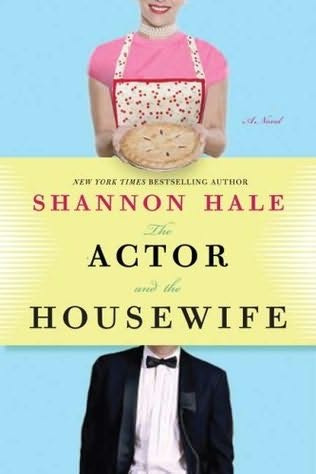 And I’m only 50 pages in.
And I’m only 50 pages in.
Right now I’m reading The Actor and the Housewife, and I just don’t quite know what to think. Here’s the blurb:
What if you were to meet the number-one person on your laminated list—you know, that list you joke about with your significant other about which five celebrities you’d be allowed to run off with if ever given the chance? And of course since it’ll never happen it doesn’t matter . . .
Mormon housewife Becky Jack is seven months pregnant with her fourth child when she meets celebrity hearththrob Felix Callahan. Twelve hours, one elevator ride, and one alcohol-free dinner later, something has happened . . . though nothing has happened.
It isn’t sexual. It isn’t even quite love. But a month later Felix shows up in Salt Lake City to visit and before they know what’s hit them, Felix and Becky are best friends. Really. Becky’s husband is pretty cool about it. Her children roll their eyes. Her neighbors gossip endlessly. But Felix and Becky have something special . . . something unusual, something completely impossible to sustain. Or is it?
A magical story, The Actor and the Housewife explores what could happen when your not-so-secret celebrity crush walks right into real life and changes everything.
This part is what gets me: “It isn’t sexual.”
My. Ass.
Now, look, Sister Hale. I realize that I shouldn’t be coming to this novel from the perspective of a romance reader, because it’s not a romance. (I know it’s not because the library cataloging block told me it isn’t. It says it’s “chick lit,” and library cataloging blocks don’t lie.) But I am coming to it from a romance reader’s perspective because it’s whispering naughty thing in romance’s ear at this point. Yet I don’t know a die-hard romance reader in the world who wouldn’t tear her hair out.
Becky Jack (the main character) is, thus far, what we romance readers would call TSTL.
Also? Flirting *kofffallinginlovekoff* with someone while you’re happily married is a HUGE romance no-no.
I had to take a break from the gore of this woman’s squished IQ and blog it. I don’t even know if I’ll be able to finish the book, except . . .
I must get back to the trainwreck that she is. I should turn my eyes away. Look somewhere else. But I can’t.

 Keep your day job.
Keep your day job.